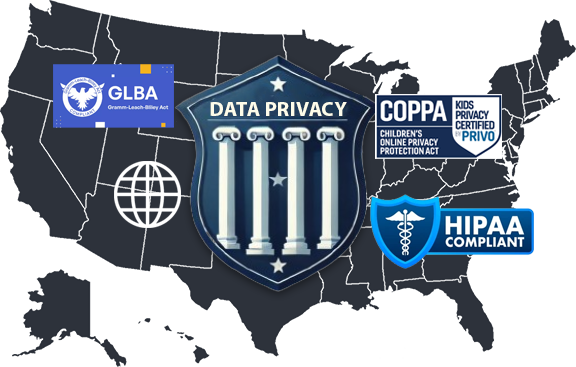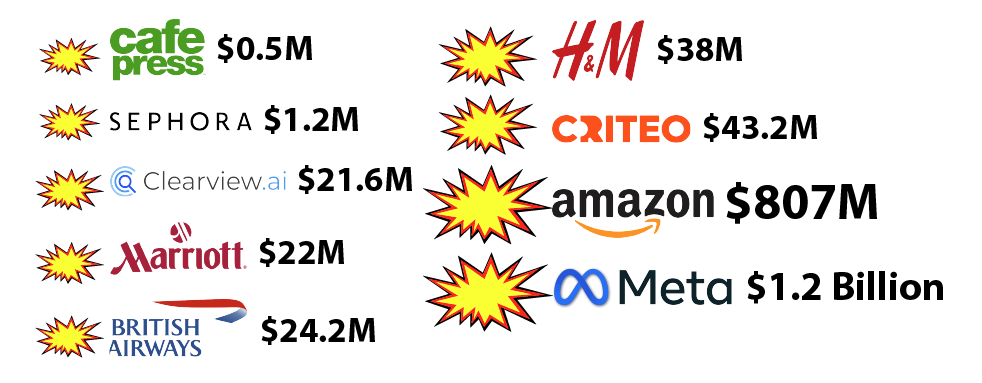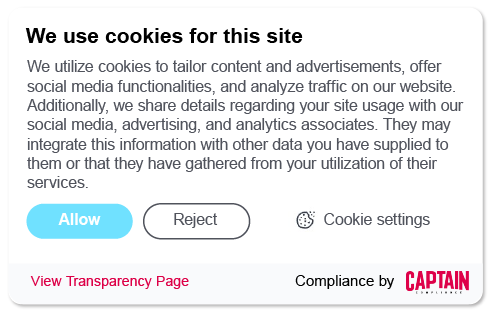As businesses increasingly rely on data to fuel their operations, data selling has emerged as a lucrative practice for many organizations. However, the sale of personal data, particularly to third parties, raises significant privacy concerns that are becoming more prominent in today’s regulatory landscape and with 20 state privacy laws that all have restrictions on misuse of data it’s important to know the issues with selling SPI and PII especially without consent of the user.
With increasing public awareness about data privacy, individuals are more cautious about how their personal information is collected, used, and shared. For businesses, the risks associated with data selling are multifaceted—ranging from legal penalties to reputational damage. This article will delve into key data selling concerns, provide real-world examples, and explore how organizations can address these issues with privacy-centric software solutions.

Selling Data to Third Parties Without Consent: A Major Concern
One of the primary concerns surrounding data selling is the unauthorized sharing of personal information with third parties. Selling data to third parties without explicit user consent is not only an ethical issue but also a breach of privacy regulations such as the General Data Protection Regulation (GDPR) and the California Consumer Privacy Act (CCPA). These regulations mandate that businesses obtain clear, informed consent before collecting, processing, or sharing any personal data.
In many cases, consumers are unaware that their data is being sold, let alone to whom it is being sold. This lack of transparency undermines trust between businesses and their customers. Additionally, selling data without consent can expose individuals to a range of risks, including identity theft, targeted advertising, and intrusive surveillance.
Example:
In 2019, Facebook faced criticism for its role in the Cambridge Analytica scandal, where user data was shared with a political consulting firm without explicit consent. This incident exposed how personal information can be weaponized for purposes that individuals may not approve of, emphasizing the importance of securing user consent before sharing data with third parties. Around the same time the United Kingdom dealt with Brexit and this was also blamed on Facebooks (Meta) misuse of data.

Data Selling Concerns Examples
1. Selling Personal Health Information
Healthcare data is among the most sensitive types of personal information. Unfortunately, some organizations have been found selling health data without the consent of individuals, often to pharmaceutical companies, insurance firms, or other entities with financial incentives. For example, in 2020, Google came under scrutiny for its partnership with Ascension, a large U.S. healthcare system, which allowed Google to access personal health data of millions of Americans without their direct consent. This situation raised alarms about the ethical implications of sharing such deeply personal data without transparency.
2. Telecommunications Data Sharing
Another common example involves telecommunications companies selling their customers’ location data to third parties. In 2018, it was revealed that major telecom providers in the U.S. were selling real-time location data to brokers, who then sold it to other businesses. This practice raised privacy concerns since consumers had not consented to the sale of such sensitive information, and this data could be misused for purposes like tracking individuals without their knowledge.
3. Online Retail and Targeted Advertising
E-commerce platforms frequently sell consumer data to advertisers without the explicit consent of shoppers. This data includes browsing habits, purchase history, and even personal preferences, all of which can be used to create detailed consumer profiles for targeted advertising. While some consumers may not mind receiving personalized ads, many feel uncomfortable knowing that their personal data is being sold without their direct approval.
Data Privacy Problems and Software Solutions
As data privacy becomes a top concern for consumers, businesses must prioritize compliance with privacy regulations to avoid the legal and ethical pitfalls of data selling. Fortunately, various software solutions like the ones created here at Captain Compliance are available to help organizations small or large manage data privacy more effectively in a nearly autonomous fashion.
1. Consent Management Platforms (CMPs)
One of the most important tools for businesses is a Consent Management Platform (CMP). A CMP helps companies collect, store, and manage user consents, ensuring that they are compliant with data privacy regulations such as GDPR and CCPA. You know that pop-up you see when you get to a website that asks if it’s okay to accept cookies or you get the option to decline the cookies. We have an image below just in case you’re not familiar.
Consent platforms provide users with transparency about what data is being collected and allow them to provide or revoke consent for data sharing. It’s typically classified by type of cookie whether it’s targeting, functional, analytical, or strictly needed cookies.
By using an approved CMP, businesses can avoid the legal risks associated with unauthorized data sharing because the banner will block the cookies. If you want to try the Captain Compliance Banner just let us know.

2. Data Anonymization Tools
Data anonymization is another effective solution for mitigating privacy concerns. Anonymization techniques allow businesses to strip identifying information from data sets, making it impossible to trace the data back to individual users. This way, businesses can still gain valuable insights from the data while safeguarding users’ privacy. Anonymized data can be shared or sold without breaching data protection laws, provided that the anonymization process is thorough and irreversible.
3. Data Minimization and Encryption
Data minimization is the practice of only collecting the data necessary for a specific purpose, thus reducing the potential risk if data is misused or breached. Coupled with encryption, where data is converted into code to prevent unauthorized access, these strategies can help businesses protect consumer data while still fulfilling business needs. These techniques are becoming integral to the way companies manage and protect their customer data.
Selling Data to Third Parties Without Individual Consent: A Breach of Core Privacy Principles
When businesses sell personal data to third parties without the explicit consent of individuals, they violate several key privacy principles enshrined in data protection laws around the world. Below are some of the critical principles that are breached:
1. Lawfulness, Fairness, and Transparency
One of the foundational principles of the GDPR is that data processing must be lawful, fair, and transparent. Selling data without consent breaches this principle because individuals are not made aware of how their data is being used or shared. Without transparency, the practice cannot be considered fair or lawful.
2. Consent
Consent is a cornerstone of data protection. Under GDPR and similar regulations, businesses must obtain explicit consent from individuals before processing or sharing their personal data. Failure to do so constitutes a violation of the individual’s rights and exposes the business to legal penalties. In the U.S., the CCPA grants consumers the right to opt out of the sale of their personal information, emphasizing the importance of consent in data transactions.
3. Data Minimization
The principle of data minimization dictates that businesses should only collect and process the data necessary for a specific purpose. Selling large amounts of personal data to third parties, especially when such data is irrelevant to the original purpose for which it was collected, breaches this principle. It often leads to unnecessary exposure of personal information, increasing the risk of data misuse.
4. Accountability
Businesses are required to demonstrate accountability for how they handle personal data. This includes being able to show that they have obtained proper consent and adhered to data protection regulations when selling data to third parties. When businesses fail to secure explicit consent before selling data, they undermine their accountability and face potential legal and financial consequences.
5. Purpose Limitation
The principle of purpose limitation ensures that data is collected for a specific, clear, and legitimate purpose. When businesses sell data to third parties for purposes unrelated to the original intent for which the data was collected, they violate this principle. For example, collecting data for the purpose of providing a service and then selling that data to advertisers without informing the user is a breach of this principle.
The Future of Data Selling and Privacy Concerns
As data privacy regulations become stricter, businesses must rethink how they handle personal data, especially when selling it to third parties. The landscape of data privacy is continuously evolving, with laws like GDPR, CCPA, and others placing more emphasis on user consent and data protection.
Moving forward, organizations will need to adopt more robust privacy practices, including the implementation of CMPs, anonymization, and encryption tools to avoid the legal pitfalls associated with unauthorized data selling. Transparency and accountability will be paramount as consumers demand greater control over their personal data. The more businesses prioritize these values, the more they will foster trust with their customers and partners, leading to long-term success in the marketplace.
In conclusion, the sale of personal data to third parties without explicit consent is a major privacy concern. Businesses that ignore the growing demand for transparency and consent in data transactions risk legal penalties, reputational damage, and loss of customer trust. However, by embracing privacy-centric software solutions such as CMPs and data anonymization tools, companies can protect user privacy while still leveraging data to drive their business forward.